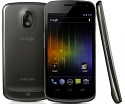Google gets $3.65 billion in annual Android ad revenue, Oracle claims
Jan 19, 2012 — by LinuxDevices Staff — from the LinuxDevices Archive — viewsOracle is claiming Google makes $3.65 billion a year in mobile advertising from Android, basing its estimate on Google's own boast of 700,000 daily activations for Android devices. Oracle made the new claim to encourage a favorable settlement in its lawsuit against Google, which is finally scheduled to go to trial in March.
An estimated 700,000 daily activations of devices based on Android may bring Google an average of $10 million per day in mobile ad revenue, according to Oracle. This would total up to $3.65 billion a year overall, says the software company.
Oracle sued Google in August 2010 for patent and copyright infringement, accusing the search engine provider of infringing seven Java patents and other copyrights in releasing its Android operating system. Oracle is seeking monetary damages and an injunction against Google from using its IP in Android. In June Oracle asked for $2.6 billion, plus a revenue share of between 10 and 15 percent of Google's mobile advertising sales generated from Android phones.
This week, Oracle said it would stay or dismiss its patent infringement claims against Google in lieu of a near-term copyright trial to facilitate a resolution. Oracle also provided a current report of its calculation for how much Android is worth to Google.
 Although Google does not "own" Android, it earns money from Google apps and services, which are available on most major Android devices, such as the Google-sponsored Samsung Galaxy Nexus (pictured). It earns much more, however, from Android-derived advertising.
Although Google does not "own" Android, it earns money from Google apps and services, which are available on most major Android devices, such as the Google-sponsored Samsung Galaxy Nexus (pictured). It earns much more, however, from Android-derived advertising.
"While this case awaits trial, more than 700,000 Android-based devices are activated every day, all fundamentally built around the copyrighted Java APIs and the enhanced performance enabled by Oracle's patents," Oracle stated in its filing. "Each day's worth of activations likely generates approximately $10 million in annual mobile advertising revenue for Google."
FOSS Patents blogger and IP expert Florian Mueller noted in a Jan. 17 post that the $3.65 billion sum assumes annual advertising revenues of $14 per Android user, a figure Oracle presumably arrived at in the discovery process of the trial. While Google has yet to confirm or deny this average revenue per user (ARPU) estimate, the total Android ad earnings, Oracle's estimate may be high. In October, Google CEO Larry Page claimed the company's total mobile ad run-rate for 2011 was $2.5 billion.
However, as Mueller has pointed out repeatedly in the past, any such payment would be marginal compared to the overall value of Android to Google over its lifetime. Indeed, Android is only a few years old and will increasingly touch more Google products.
Oracle recognized as much in its filing, noting that its calculations don't include Android Market revenue. In addition, the figure does not include "lucrative relationships with manufacturers of myriad devices on which Android can and does run, to the inordinately valuable access Android provides to customers for its new social network service, Google+," stated Oracle.
Of course, any damage estimate Oracle would lay claim to is a moving target at this point. Android's activations won't sit still at the 700,000 a day rate Google claimed Dec. 20. After all, Google reported 550,000 daily activations in November. In fact, Google could claim as many as 1 million activations in the next 6 to 12 months. If Oracle hasn't settled with Google by then, it could be eligible for even more money.
On Jan. 4, the judge in the Oracle versus Google patent infringement case set a March 19, 2012 trial date. U.S. District Judge William Alsup also established a three-part trial and ruled on several outstanding motions in the case.
The first part of the trial will deal with copyright infringement claims, the second will handle patent infringement claims, and the third part will deal with remaining issues including damages. Alsup also ruled that a possibly incriminating email by Google engineer Tim Lindholm could be entered into evidence.
Apple loses skirmish in Motorola lawsuit
Oracle's suit is just one of many revolving around Android, which has soared to become the top smartphone operating system with over 50 percent market share worldwide, according to several sources. In the U.S., Android holds onto the lead with 46.9 percent of smartphone purchases in the fourth quarter, according to a new Nielsen report. This was despite a surge for iOS to 44.5 percent, thanks to the arrival of the Apple iPhone 4S, says the research firm.
Apple has sued Motorola, Samsung, HTC and others for patent infringement related to Android. Earlier this week, a U.S. International Trade Commission (ITC) administrative law judge issued an initial determination finding that Motorola Mobility has not violated any of the three patents listed in an October 2010 lawsuit Apple filed against the Droid maker.
While this gives hope to Motorola, which is expected to be acquired soon by Google, the final judgment won't arrive until March, when the preliminary ruling will be reviewed by a six-member ITC panel.
In late December, Microsoft scored a minor victory with another ITC preliminary ruling, this time applying to its own Android-related patent lawsuit against Motorola Mobility. The ITC found that Motorola Mobility's Android devices infringed on aspects of one Microsoft patent. But the judge also declined to find Motorola Mobility in violation of six other Microsoft patents.
Microsoft last week racked up another Android-related patent agreement when it signed a deal with LG, giving it a share of the South Korean vendor's Android revenues.
Clint Boulton is a writer for eWEEK.
This article was originally published on LinuxDevices.com and has been donated to the open source community by QuinStreet Inc. Please visit LinuxToday.com for up-to-date news and articles about Linux and open source.